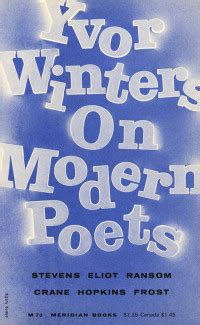A Quote by Novalis
The poem of the understanding is philosophy.
Quote Topics
Related Quotes
Poetry is a bad medium for philosophy. Everything in the philosophical poem has to satisfy irreconcilable requirements: for instance, the last demand that we should make of philosophy (that it be interesting) is the first we make of a poem; the philosophical poet has an elevated and methodical, but forlorn and absurd air as he works away at his flying tank, his sewing-machine that also plays the piano.
One of the things that was really influential early on was Ezra Pound's Cantos, one poem he worked on for 50 years. It's epic. I had a great deal of difficulty understanding it. One of the problems was you'd be reading along in English and he would move to a Chinese ideogram or French-he actually used seven different languages in a given poem. And for somebody who's not fluent in different languages it has the impact of rupturing your way of understanding something.
The subject of the poem usually dictates the rhythm or the rhyme and its form. Sometimes, when you finish the poem and you think the poem is finished, the poem says, "You're not finished with me yet," and you have to go back and revise, and you may have another poem altogether. It has its own life to live.
Some of my understanding of what philosophy and ethics is has changed very slowly. One thing that has changed is this for quite a long time I bought-into the idea that philosophy is basically about arguments. I'm increasingly of the view that it isn't. The most interesting things in philosophy aren't arguments. The thing that I think is underestimated is what I call a form of attending. I think that philosophy is at least as much about carefully attending to things as it is about the structure of arguments.
People who turn to philosophy expecting to harvest a crop of formulas of wisdom or understanding do not understand-philosophy has such things, but they are merely incidental, not the essence of the matter. Philosophy is about subtilizing and tuning up the coherence and acuity of one's seeing, it is about opening new dimensions for insight, learning to think about what one is doing when one thinks instead of just blundering through the processes of putting thoughts together.
What I desire of a poem is a clear understanding of motive, and a just evaluation of feeling A poem in the first place should offer us a new perception..bringing into being a new experience Verse is more valuable than prose for its rhythms are faster and more highly organised and lead to greater compexity.
I keep feeling that there isn't one poem being written by any one of us - or a book or anything like that. The whole life of us writers, the whole product I guess I mean, is the one long poem - a community effort if you will. It's all the same poem. It doesn't belong to any one writer - it's God's poem perhaps. Or God's people's poem.





































